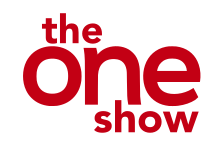| The One Show | |
|---|---|
 | |
| Genre | News magazine |
| Presented by | |
| Country of origin | United Kingdom |
| Original language | English |
| No. of episodes | 3,941 (up to and including 25 July 2024)[1] |
| Production | |
| News editor | Rob Unsworth |
| Production locations |
|
| Running time | 30–60 minutes |
| Production company | BBC Studios Factual Entertainment Productions |
| Original release | |
| Network | BBC One (2006–present) BBC Two (occasionally, see below) |
| Release | 14 August 2006 – present |
| Infobox instructions (only shown in preview) | |
The One Show is a British television magazine and chat show programme. Broadcast live on BBC One weekdays at 7:00 pm, it features topical stories and studio guests.[2] It is currently co-hosted by Alex Jones, Roman Kemp and Lauren Laverne. Various reporters also assist with subject-specific presenting, both in the studio and on location, or through filmed segments. Originally produced in Birmingham and then in the BBC Media Village in White City, London, since 2014 the studio has been based in Broadcasting House, the BBC's headquarters in London.
Launched with a pilot series in 2006, leading to a full series from 2007, it has had various previous permanent and temporary hosts. After initial low ratings, the partnership of Adrian Chiles and Christine Lampard from 2007 to 2010 has been credited with boosting ratings and establishing the show as a popular staple of British viewing.[3] The longest-serving partnership was between Jones and Matt Baker, who hosted together between 2011 and 2020.
The programme is usually 30 minutes long, although it is occasionally extended to an hour. It runs all year round, apart from a two-week break at Christmas and a four-week summer holiday, with the summer slot filled with a highlights show, The One Show: Best of British, presented by Matt Allwright and Lucy Siegle. In 2020 the consumer affairs programme Watchdog became a slot on the One Show, on Wednesdays at 19:00.
Launching the full series represented a major financial commitment for the BBC, and was seen by it as a first test of a wide-ranging restructuring of the BBC's production arm into a more flexible and creative organisation, with the show seen as a potential platform for piloting other programme ideas.[4]
- ^ "Episodes".
- ^ "BBC One - The One Show - Next on". BBC.
- ^ Benedictus, Leo (13 April 2010). "All change at The One Show". The Guardian. ISSN 0261-3077. Retrieved 20 February 2016.
- ^ Brown, Maggie (11 December 2006). "Salmon's leap of faith". The Guardian. ISSN 0261-3077. Retrieved 4 February 2014.